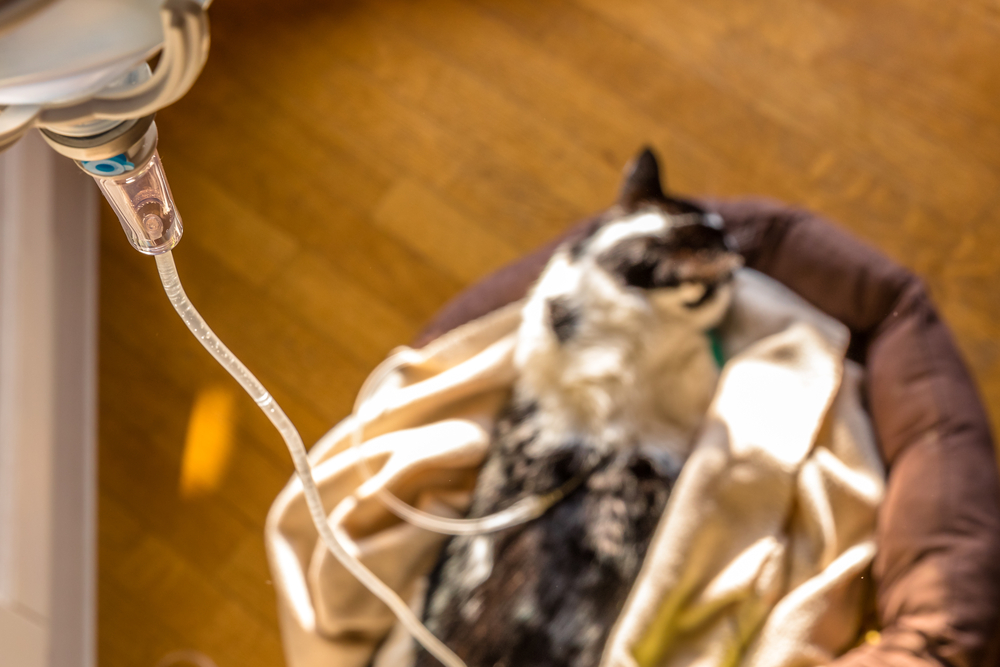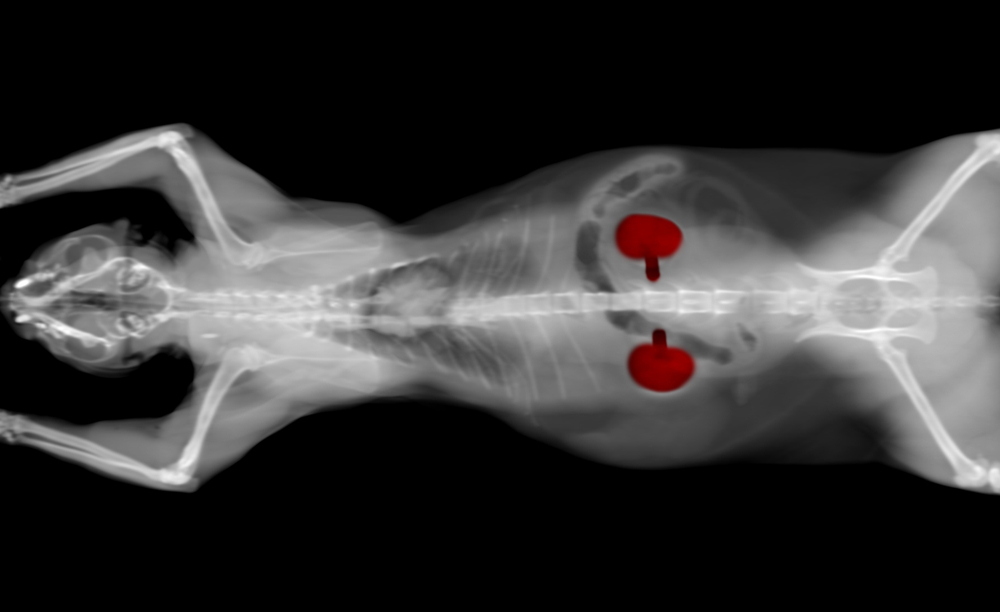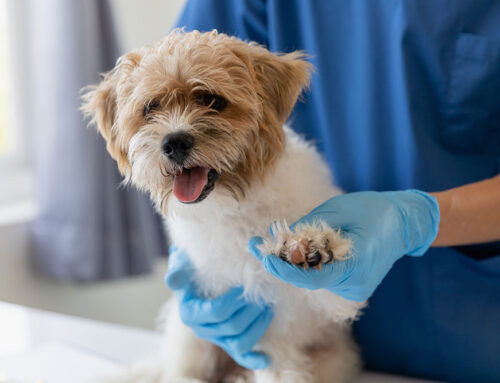Pets don’t typically exhibit chronic kidney disease (CKD) signs in the condition’s initial stages, making detection difficult. However, early diagnosis helps improve affected pets’ longevity, quality of life, and overall prognosis. Our Bayview Animal Hospital team wants to ensure your pet lives their best life, and we provide information to highlight the importance of early CKD detection.
The importance of your pet’s kidneys
Your pet’s kidneys are crucial to sustain their life. These vital organs serve numerous important functions, including:
- Water conservation — Hydration is a balance between water consumed and water expelled. Kidneys are responsible for conserving water when your pet is dehydrated and eliminating water if your pet drinks too much. If your pet’s kidneys are not functioning normally, they can’t concentrate the urine, causing them to drink excess amounts of water to process the body’s waste material.
- Toxin removal — The kidneys are made of filtering units (i.e., nephrons) that remove waste materials from your pet’s blood. These materials are dissolved in water and excreted as urine. If the kidneys aren’t functioning properly, toxins accumulate in the bloodstream, and can cause your pet to become ill.
- Calcium phosphorus balance — Kidneys play an important role in maintaining a normal calcium to phosphorus ratio. In CKD, blood phosphorus levels increase, causing calcium to leach from your pet’s bones to correct the imbalance, which weakens their bones and causes inflammatory mineral deposits to build up in the soft tissues.
- Sodium potassium balance — The kidneys control the body’s electrolyte balance, including conserving potassium. When the kidneys aren’t functioning properly, potassium is lost, leading to weakness.
- Blood pressure regulation — The kidneys have sensors that help regulate your pet’s blood pressure. A pet who has CKD can develop hypertension, which can further damage their kidneys.
- Protein conservation — When filtering the blood, a normal nephron retains important proteins while removing wastes. If this filtration system is damaged, glomerular disease occurs, allowing protein to be excreted in the urine.
- Red blood cell production — The kidneys produce erythropoietin, a hormone that signals the bone marrow to make more red blood cells. When the kidneys are damaged, they don’t produce the hormone, leading to a nonresponsive anemia.
- pH balance — The kidneys regulate the body’s pH balance to ensure that metabolic processes function properly. In CKD, the pH balance is disrupted.
Chronic kidney disease in pets
Pets with CKD or renal insufficiency gradually lose kidney function. The condition can be caused by chronic infections (e.g. dental disease), high blood pressure, immune-mediated disorders, and congenital abnormalities, and be secondary to acute kidney injury. In many cases, the condition’s cause is unknown. Based on an affected pet’s laboratory values and clinical signs, their CKD is classified as being in one of four stages:
- Stage 1 — Clinical signs are typically not present, and pets in stage 1 are often identified during a routine wellness examination.
- Stage 2 — Kidney values are mildly elevated, and clinical signs are usually absent or mild.
- Stage 3 — Kidney values are moderately elevated. Clinical signs vary, but can cause significant illness.
- Stage 4 — Kidney values are high, and the pet is at risk of a medical crisis.
Chronic kidney disease detection in pets
Pets frequently don’t show early stage CKD signs, but when signs are present, they include lethargy, increased thirst and urination, intermittent vomiting, decreased appetite, dehydration, oral ulcers, foul breath, and weight loss. Veterinarians frequently diagnose CKD based on the results of routine screening tests, such as:
- Creatinine — The kidneys should filter creatinine—a compound waste product that results from muscle-related energy-producing processes. High creatinine levels can indicate kidney dysfunction. Creatinine levels don’t rise until about 75% of the kidney function is lost.
- Blood urea nitrogen (BUN) — During protein digestion, the liver produces the waste product urea. High urea levels can indicate renal insufficiency. The kidneys typically are significantly compromised before BUN levels rise.
- Symmetric dimethylarginine (SDMA) — SDMA is an amino acid that is produced when proteins are broken down. Creatinine and BUN were historically the main CKD diagnostic markers, but SDMA is now considered a valuable adjunctive tool, because values increase when 40% of kidney function is lost, and in some cases, SDMA values increase when as little as 25% of kidney function has been lost. SDMA is highly recommended as a screening test for all pets, especially senior pets.
- Urine specific gravity — Urine specific gravity indicates the urine’s dilution or concentration level. A low urine specific gravity can indicate that the kidneys can’t conserve water effectively.
Chronic kidney disease diagnostics in pets
Once our veterinarians have diagnosed your pet as having CKD, they will likely recommend further testing to ensure they prescribe your furry pal’s most effective treatment. Additional CKD diagnostics may include:
- Urine protein to creatinine (UPC) ratio — To quantify the amount of protein your pet is losing in their urine, our veterinarians will evaluate their UPC ratio, which compares the amount of protein in the urine to the amount of creatinine.
- Urine culture — Pets with CKD have a high urinary tract infection (UTI) risk, and a urine culture helps determine if antibiotics are necessary.
- Blood pressure evaluation — Increased blood pressure frequently occurs secondary to CKD and can exacerbate the condition. Our veterinarians will measure your pet’s blood pressure to ensure their levels are normal.
- Imaging — Our veterinarians may recommend X-rays or an ultrasound to further evaluate your pet’s kidneys.
Chronic kidney disease management in pets

CKD treatment depends on your pet’s CKD stage. However, common CKD treatment strategies include:
- Fluid therapy — Intravenous or subcutaneous fluid therapy is essential to maintain your pet’s hydration and help remove toxic metabolites.
- Diet — Proper nutritional support is important for pets in CKD. The ideal CKD patient diet is low in protein, phosphorus, and sodium, and high in water-soluble vitamins, fiber, and antioxidants. The most nutritionally appropriate CKD diets require a veterinary prescription.
- Medications — Our veterinarians may also prescribe medications to control hypertension, decrease urinary protein loss, and address anemia and calcium phosphorus imbalances.
CKD is a serious condition, but early detection can improve your pet’s prognosis. Contact our Bayview Animal Hospital team so we can screen your pet to ensure their kidney function is healthy.







Leave A Comment